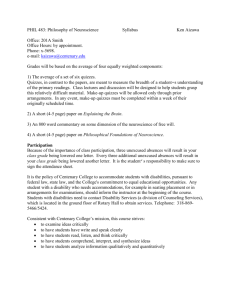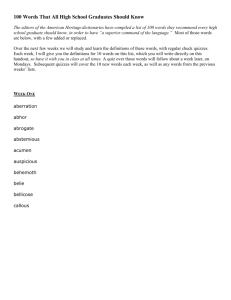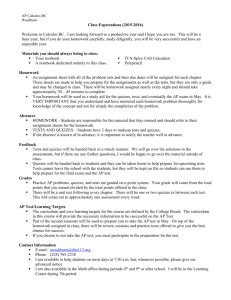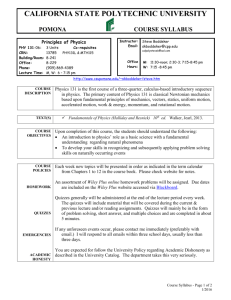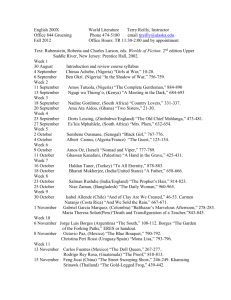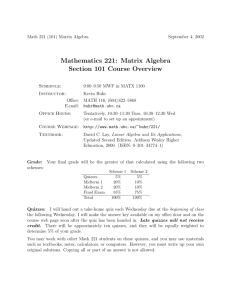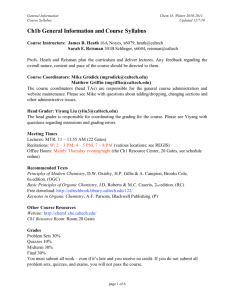here - Caltech Emotion and Social Cognition Laboratory
advertisement
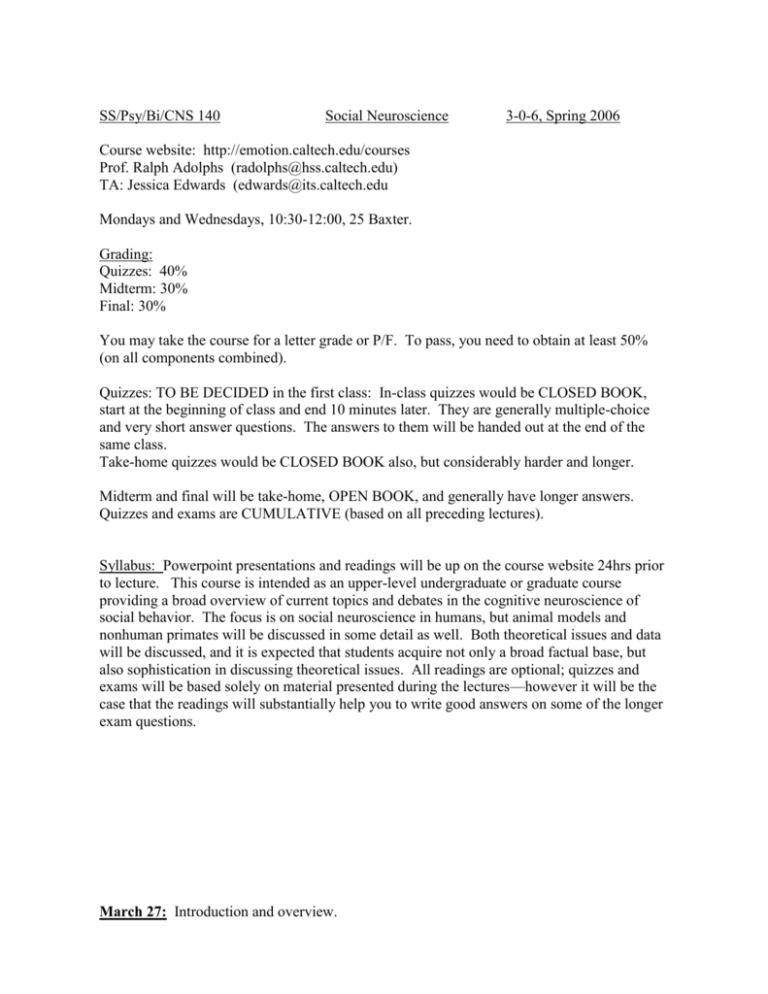
SS/Psy/Bi/CNS 140 Social Neuroscience 3-0-6, Spring 2006 Course website: http://emotion.caltech.edu/courses Prof. Ralph Adolphs (radolphs@hss.caltech.edu) TA: Jessica Edwards (edwards@its.caltech.edu Mondays and Wednesdays, 10:30-12:00, 25 Baxter. Grading: Quizzes: 40% Midterm: 30% Final: 30% You may take the course for a letter grade or P/F. To pass, you need to obtain at least 50% (on all components combined). Quizzes: TO BE DECIDED in the first class: In-class quizzes would be CLOSED BOOK, start at the beginning of class and end 10 minutes later. They are generally multiple-choice and very short answer questions. The answers to them will be handed out at the end of the same class. Take-home quizzes would be CLOSED BOOK also, but considerably harder and longer. Midterm and final will be take-home, OPEN BOOK, and generally have longer answers. Quizzes and exams are CUMULATIVE (based on all preceding lectures). Syllabus: Powerpoint presentations and readings will be up on the course website 24hrs prior to lecture. This course is intended as an upper-level undergraduate or graduate course providing a broad overview of current topics and debates in the cognitive neuroscience of social behavior. The focus is on social neuroscience in humans, but animal models and nonhuman primates will be discussed in some detail as well. Both theoretical issues and data will be discussed, and it is expected that students acquire not only a broad factual base, but also sophistication in discussing theoretical issues. All readings are optional; quizzes and exams will be based solely on material presented during the lectures—however it will be the case that the readings will substantially help you to write good answers on some of the longer exam questions. March 27: Introduction and overview. March 29: Basic issues in social cognition. Evolutionary psychology, the social brain hypothesis, the IAT, the mere exposure effect. April 3: Brain basics and terms. Facial attractiveness, pheromones. April 5: The role of genes in social behavior: innateness and culture. Neurotransmitters: Dopamine and serotonin. If time: Williams Syndrome. April 10: 10:45-12:00 Introduction to Neuroimaging (Mike Tyszka). April 12: Cognitive neuropsychology: vision, language, memory, emotion and executive functions. April 17: Emotion. April 19: Face Processing, Introduction to the Amygdala. April 24: The Amygdala revisited: facial emotion, social judgment and neuropsychiatry. (Maybe Williams Syndrome). April 26: Moral judgment. Belief and Capgras syndrome (Jessica Edwards). May 1: The prefrontal cortex I: cognitive control, somatic markers, and psychopaths. May 3: The prefrontal cortex II: intuition and spindle cells (John Allman). (Midterm Due). May 8: Comparative social cognition I: voles and hamsters. May 10: Comparative social cognition II: monkeys and apes. May 15: Simulation and empathy (Michael Spezio). May 17: Theory of mind and autism (Fulvia Castelli). May 22: Neuroeconomics (Colin Camerer). May 24: Review. June 1: Final due.
